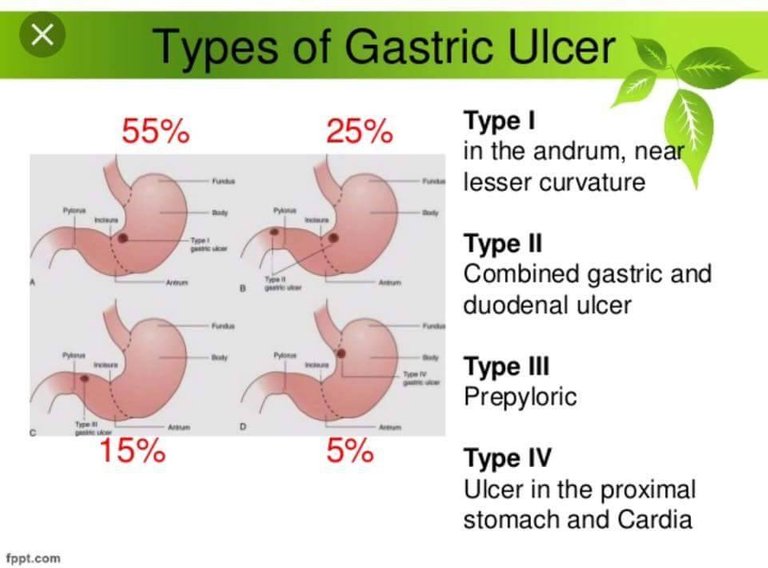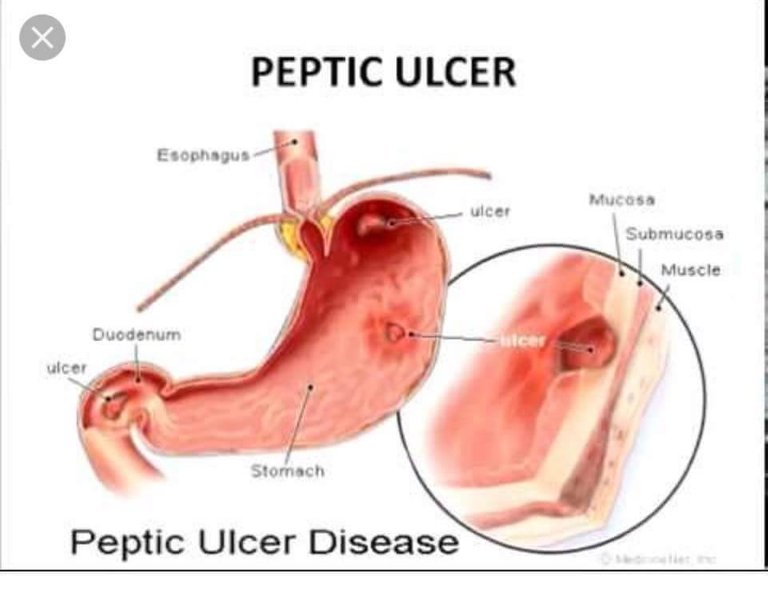Today's discussion is on Peptic Ulcer! Many people suffer from this condition and truly do not know how it occurred or what treatment option that is available to them. If you suffer from gastric or duodenal ulcer, tune into this discussion. Certain foods and fasting increase the symptoms of peptic ulcer. I advise that those who have gastric or duodenal ulcer should avoid skipping meals and find out some foods and fruits, that may increase their symptoms and avoid them or find substitutes for them. Also to seek doctor's advice before changing your diet.
What is Peptic Ulcer?
Peptic ulcer are sores that are found in the lining of the stomach or the first part of the small intestine. They occur when the thick layer of mucus that protects the stomach from digestive juices is reduced, thus enabling the digestive acids to eat away at the lining tissues of the stomach or small intestine.
When we eat our foods, it travels through a long tube called the esophagus and drops into our stomach. As you all know, digestion starts in the mouth and continues. Digestive juices in the stomach also acts to break down the food further. Then the food continues to travel from the stomach through the small intestine, large intestine and finally unwanted portion is excreted through the anus after the body takes the nutrients that it needs.
These sores can occur in different spots of the stomach lining and the first part of the small intestine called the duodenum. When the sores also called ulcers occur in the stomach, it's called gastric ulcer. When it occurs in the first part of the small intestine, it's called duodenal ulcer.
What causes gastric and duodenal ulcer ( peptic ulcer)?
Different things have been implicated to cause the condition.
A bacteria called Helicobacter Pylori also known as H. Pylori is the most common cause of gastric or duodenal ulcer. Other factors that can increase the chances of having ulcer include: use of painkillers like aspirin or ibruprofen such as Motrin, Advil etc. Excessive acid production of the stomach, excessive drinking of alcohol, radiation treatment and other serious illness.
Symptoms associated with ulcer:
Stomach pain
Heartburn
Nausea and vomiting
Severity of the condition can produce symptoms like weight loss, vomiting blood, dark or black stool.
Things that are likely to happen when ulcers are not properly treated include: Perforation of the stomach, bleeding and stomach obstruction due to swelling or scarring.
TREATMENT OPTIONS
Proton pump inhibitors (PPI). Proton pump medications reduce acid levels and allow the ulcer to heal. They include dexlansoprazole (Dexilant), esomeprazole (Nexium), lansoprazole (Prevacid), omeprazole (Prilosec), pantoprazole (Protonix), rabeprazole (Aciphex), and omeprazole/sodium bicarbonate (Zegerid).
Antibiotics . If you have H. pylori infection, then antibiotics are also used. There are multiple combinations of antibiotics that are taken for one to two weeks along with a Proton pump inhibitors. Bismuth is also part of some treatment regimens.
Upper endoscopy . Some bleeding ulcers can be treated through an endoscope.
Surgery. Sometimes an operation is needed if the ulcer has created a hole in the wall of the stomach, or if there is serious bleeding that can't be controlled with an endoscope.
To reduce the risk of developing ulcers:
Don't smoke.
Avoid alcohol.
Don't overuse aspirin and/or non-steroidal anti-inflammatory drugs.
Good news, Swissgarde Herbalguard and naturguard products like super cider, marina spar, aloe power and African potato takes cares care of ulcer with no side effects.

Nice! Upvote